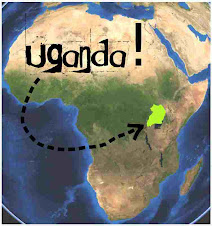Many people have compared Peace Corps' pre-service training (PST) to military boot camp. In some ways this is accurate: both PST and boot camp are 2+ jam-packed months of preparation for service. A Trainee, much like a Recruit, has little to no free time on the average day. Training runs from 8 am to 5 pm, 6 days a week, and studying language, completing technical assignments, or doing laundry by hand can easily consume the remaining waking hours. In short, "your time is not your own" (that's straight from headquaters in DC). The goal of PST is to transform an ordinary American into a Peace Corps Volunteer, just as the goal of boot camp is to turn an American into a Marine, e.g. In both cases, the overseeing organization wants this transformation to happen as fast as possible, which makes PST and boot camp fairly intense.
But obviously, we Trainees aren't firing at targets or running obstacle courses from dawn 'til dusk. Instead, we study endangered indigenous languages, plan local economic development projects, and learn how to tell a ripe jackfruit from a rotten one (I'll let you in on the secret - if it smells sweet and sounds hollow when you hit it, it's good to eat. Just be prepared to have sticky tendrils of jackfruit slime between your digits for the rest of the day!). We sleep in the homes of local host families, not in a barracks. We wear collared shirts and trousers to work, not fatigues. And we call our trainers by their first names, not "sir" or "Sergeant."
As of writing, I'm about halfway done with Peace Corps boot camp. Like life itself, PST has its ups and downs. For the most part, the language classes have been fantastic. I'm learning Runyoro-Rutooro, a Bantu language spoken by about 1 million people in the region around Fort Portal and Lake Albert (where I'll eventually be posted, once I complete training), extending into the Democratic Republic of the Congo (where Volunteers cannot officially go) and just south of the Equator. An interesting feature of the language is that, in casual conversation, speakers address each other by one of twelve empaako, or pet names. My empaako is Atenyi (which I chose myself, despite my host family wanting to call me Akiiki), a name referring to the snake guardian of the Mzizi River, which separates the Bunyoro and Butooro kingdoms. Every morning, our language class of four meets in a straw hut that overlooks a gorgeous vista of rolling green hills and banana trees, reminding us that we live in paradise. Cock-a-doodle-do-ing roosters add to the atmosphere, competing with our language instructor, Anthony, for our attention. Trainees in other language classes all insist that their instructors are the best, but seriously, nobody tops Anthony. I mean, on day one, the guy started class with a dialogue between two sock puppets named Mr. Purple and Miss Yellow. How cool is that? To help us learn the names of different food plants, he walked us through the gardens of the training facility (RACO), pointing out cassava, sugar cane, pumpkin, yam. And when the day is done, he schools us all in volleyball with his nasty spike.
Unfortunately, other components of training vary WIDELY in quality, depending on who is conducting them and how well the activities are planned out. I generally like our weekly medical sessions; after a rabies shot and a lecture on digging mango fly larvae out of your epidermis, I always have a nice chat with Nurse Kathy as she checks on the progress of my toe infection. But the cross-cultural, security, secondary education training sessions held at RACO sometimes just suck really, really bad. Like the day when they made us read through a 200-page manual on workshop design, in which I found a "Recipe for Community Bread" that listed "one cup of strong community leaders" as an ingredient and "Bake at 360 degrees of respect" as a preparation step. That was my cue to drop the manual, put on my Ray Banns, and go outside for a covert sun siesta.
My favorite non-language training sessions have been the ones led by current Volunteers. Unlike the trainers, they have all completed at least a year of service. They know the challenges of life in the field firsthand. They've taught algebra to classes of 140 students between fits of diarrhea, founded wildly successful outdoors clubs (a project I hope to pursue at site, given the close proximity of my post to Queen Elizabeth National Park, the Great Rift Valley, and the 16,000-foot Rwenzori Mountains), and bent Peace Corps rules to the breaking point countless times. They are inspiring, encouraging, and fun to talk to. Also, some of them know how to cut muzungu hair, which is nice because I like my locks longer than 1/4 inch. Besides teaching us interesting things like how to make a jerry can shower, build a community garden, discipline students, or start an NGO, they help bring the whole experience to life, making it seem a little less overwhelming, and a lot more doable.
Time to call it a night. Boot camp continues tomorrow with two weeks of technical immersion in the field, during which I'll be living with a current Volunteer (Lizzie) in her rural Wakiso village, teaching her secondary school math and physics classes while she kicks back and relaxes (actually, she'll be working on other projects with local girls while I assume her primary responsibilities). Stay classy. More updates to come!
The content and opinions found on this blog are mine alone, and do not reflect any position of the United States Government or the Peace Corps.
March 15, 2010
Subscribe to:
Post Comments (Atom)









Good luck on your northern trip, whatever it is.
ReplyDelete